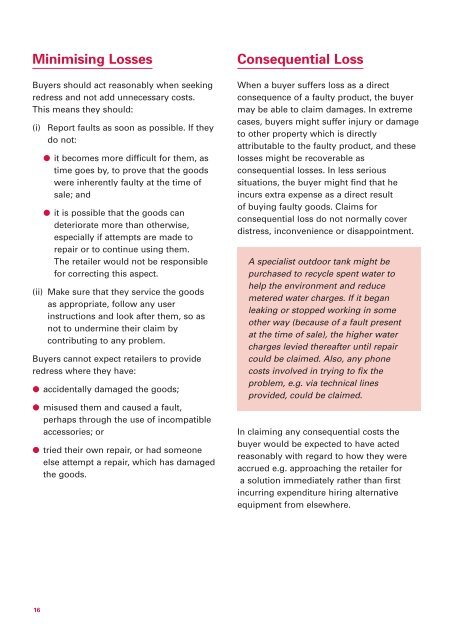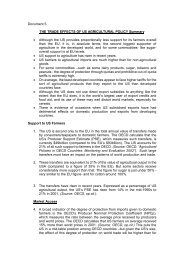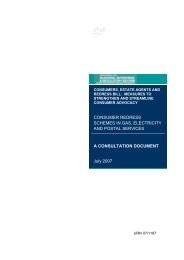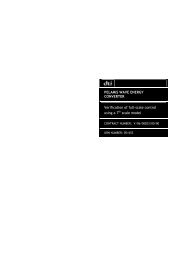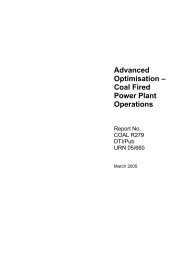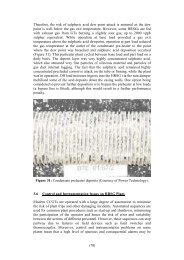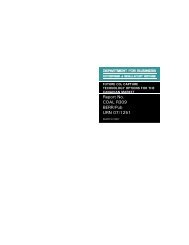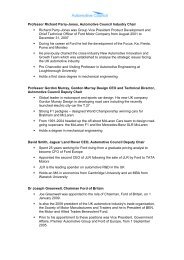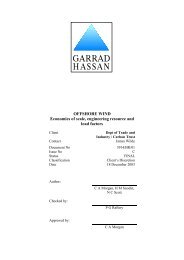A traders guide: the law relating to the - DTI Home
A traders guide: the law relating to the - DTI Home
A traders guide: the law relating to the - DTI Home
Create successful ePaper yourself
Turn your PDF publications into a flip-book with our unique Google optimized e-Paper software.
Minimising Losses<br />
Buyers should act reasonably when seeking<br />
redress and not add unnecessary costs.<br />
This means <strong>the</strong>y should:<br />
(i) Report faults as soon as possible. If <strong>the</strong>y<br />
do not:<br />
it becomes more difficult for <strong>the</strong>m, as<br />
time goes by, <strong>to</strong> prove that <strong>the</strong> goods<br />
were inherently faulty at <strong>the</strong> time of<br />
sale; and<br />
it is possible that <strong>the</strong> goods can<br />
deteriorate more than o<strong>the</strong>rwise,<br />
especially if attempts are made <strong>to</strong><br />
repair or <strong>to</strong> continue using <strong>the</strong>m.<br />
The retailer would not be responsible<br />
for correcting this aspect.<br />
(ii) Make sure that <strong>the</strong>y service <strong>the</strong> goods<br />
as appropriate, follow any user<br />
instructions and look after <strong>the</strong>m, so as<br />
not <strong>to</strong> undermine <strong>the</strong>ir claim by<br />
contributing <strong>to</strong> any problem.<br />
Buyers cannot expect retailers <strong>to</strong> provide<br />
redress where <strong>the</strong>y have:<br />
accidentally damaged <strong>the</strong> goods;<br />
misused <strong>the</strong>m and caused a fault,<br />
perhaps through <strong>the</strong> use of incompatible<br />
accessories; or<br />
tried <strong>the</strong>ir own repair, or had someone<br />
else attempt a repair, which has damaged<br />
<strong>the</strong> goods.<br />
16<br />
Consequential Loss<br />
When a buyer suffers loss as a direct<br />
consequence of a faulty product, <strong>the</strong> buyer<br />
may be able <strong>to</strong> claim damages. In extreme<br />
cases, buyers might suffer injury or damage<br />
<strong>to</strong> o<strong>the</strong>r property which is directly<br />
attributable <strong>to</strong> <strong>the</strong> faulty product, and <strong>the</strong>se<br />
losses might be recoverable as<br />
consequential losses. In less serious<br />
situations, <strong>the</strong> buyer might find that he<br />
incurs extra expense as a direct result<br />
of buying faulty goods. Claims for<br />
consequential loss do not normally cover<br />
distress, inconvenience or disappointment.<br />
A specialist outdoor tank might be<br />
purchased <strong>to</strong> recycle spent water <strong>to</strong><br />
help <strong>the</strong> environment and reduce<br />
metered water charges. If it began<br />
leaking or s<strong>to</strong>pped working in some<br />
o<strong>the</strong>r way (because of a fault present<br />
at <strong>the</strong> time of sale), <strong>the</strong> higher water<br />
charges levied <strong>the</strong>reafter until repair<br />
could be claimed. Also, any phone<br />
costs involved in trying <strong>to</strong> fix <strong>the</strong><br />
problem, e.g. via technical lines<br />
provided, could be claimed.<br />
In claiming any consequential costs <strong>the</strong><br />
buyer would be expected <strong>to</strong> have acted<br />
reasonably with regard <strong>to</strong> how <strong>the</strong>y were<br />
accrued e.g. approaching <strong>the</strong> retailer for<br />
a solution immediately ra<strong>the</strong>r than first<br />
incurring expenditure hiring alternative<br />
equipment from elsewhere.


